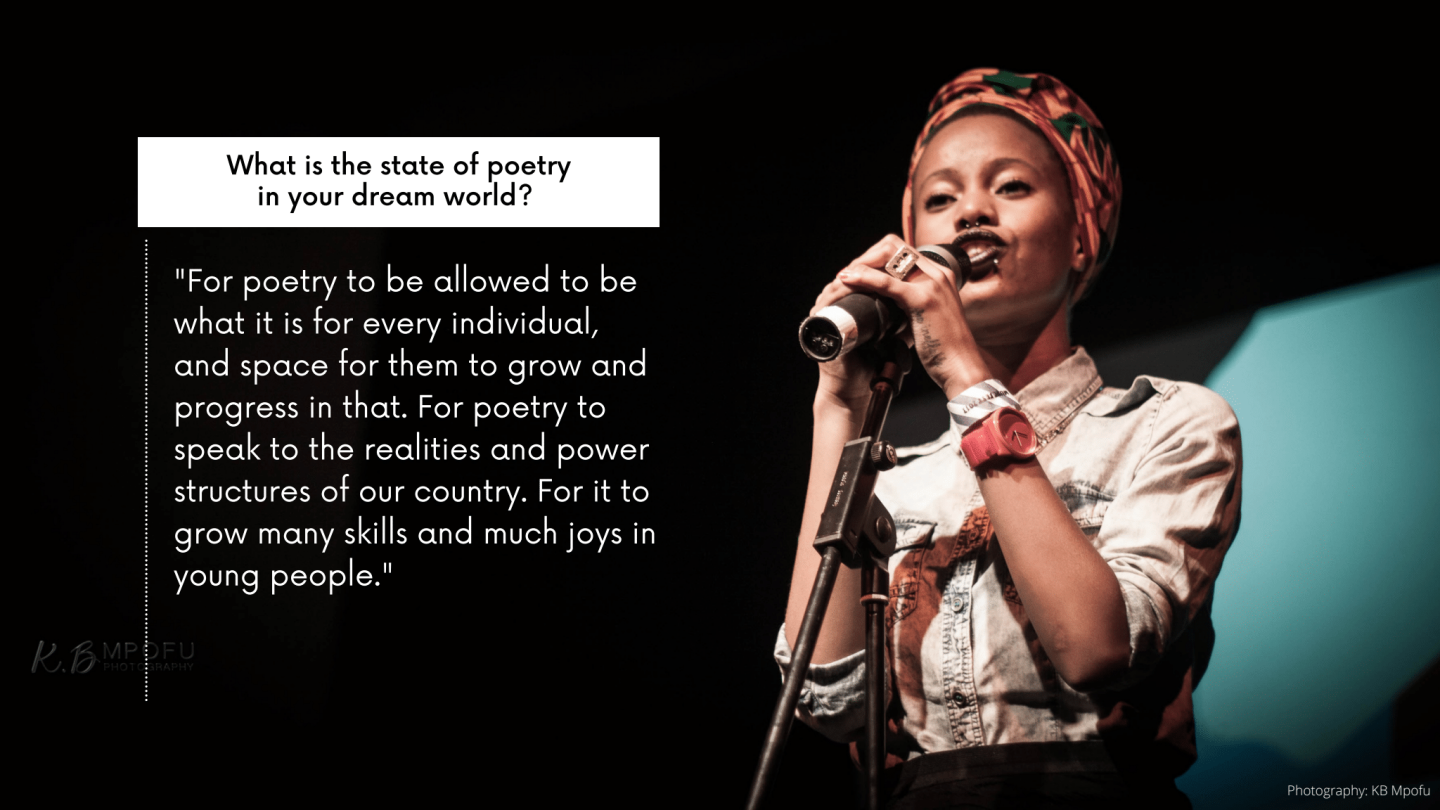“Right To Speak” leverages the power of digital to create spaces enabling young poets across oceans to speak, learn and grow together while supporting and building capacity for local organisations for sustained impact.
Although spoken word artists have opportunities to showcase their work locally and regionally, there are major gaps that support engagement with international audience. This lack of internationalisation has worsened due to the current Corona pandemic. The project addresses both building the capacity of existing spaces in which showcasing will be facilitated, and opening up opportunities through which artists are being exposed to other (international) artists, as well as to a larger regional and international audience.
“Right To Speak” leverages the power of digital to create spaces enabling young poets across oceans to speak, learn and grow together while supporting and building capacity for local organisations for sustained impact. A catalogue of export-ready local poets will be designed to broker connections with international curators looking to book local talent. Further connections between Europe and South Africa will be created through various hybrid events and co-productions using poetry as a vehicle to drive conversations around human rights among young people. A series of workshops and masterclasses ensures skills are developed and poets and organisations sustainably acquire key skills and knowledge.
Building strong and sustainable poet communities
For the project’s design, the project team conducted an exploratory survey to better understand the target community’s needs. It found that the most common needs included:
- Arts administration training
- Capacity building for organisations
- Access to international markets
- Spaces and opportunities for collaboration
The project intentionally and strategically addresses these needs. The Covid-19 pandemic revealed a real need for artists & organisations to better understand digital & how to adequately translate their work. In response, the project team has ensured digital skills workshops using digital tools & platforms to showcase digital performances and discussions. The project opens up avenues for poets & organisations to find/create decent work & economic growth. Their focus on building strong relationships is aimed sustaining connected, safe, & inclusive physical & digital communities. Lastly, gender equality is important. The project will ensure the fair representation of women & women-led organisations.
Step 2 of the application process allowed the team to delve deeper into the initially proposed idea and to build greater detail around how to achieve the stated goals of the project. Several partner workshops allowed partners to share their views and shape the project, all on equal footing. The research conducted gave all partners greater context on the poetry sector and its needs in order to build a programme that best addressed the existing gaps. The survey also allowed for the poetry community to speak for itself.
In order to help realise the South African poetry landscape’s aspirations and desires, it helps that some of the biggest role players within the industry have an opportunity to act in one accord. The impact that can be attained when working together far supersedes the impact that’s achieved when working independently.
Phomolo Sekamotho, Hear My Voice
Examples of the work poets have produced for the virtual stage

